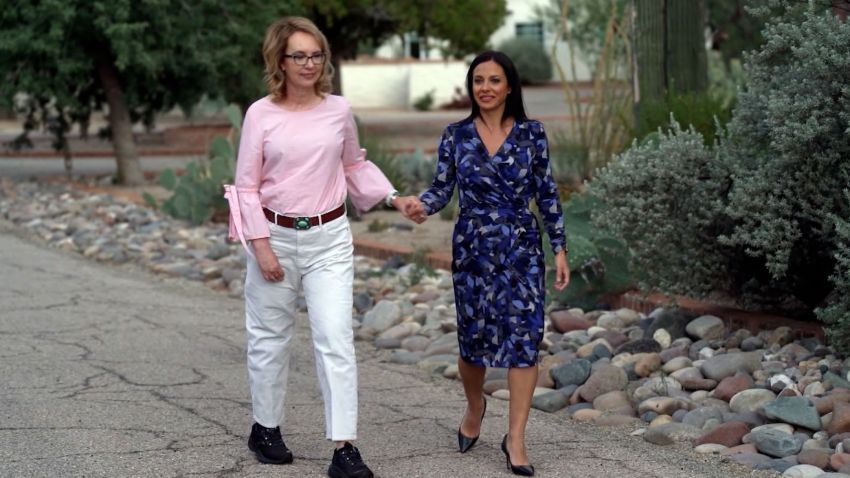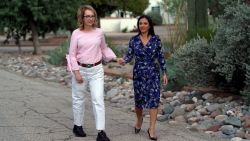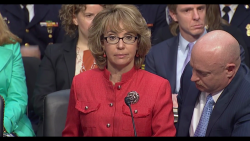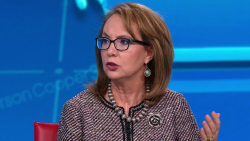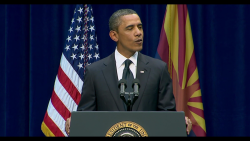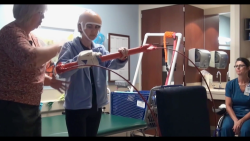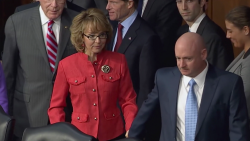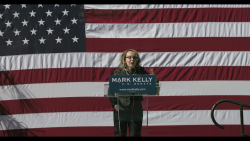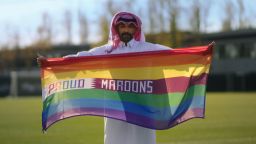Editor’s Note: Gabrielle Giffords, a Democrat, represented Arizona’s 8th district in Congress from 2007 to 2012. She’s the founder of the gun violence prevention organization Giffords. The views expressed in this commentary are her own. Read more opinion articles on CNN.
Watch “Gabby Giffords Won’t Back Down” at 9 p.m. ET/PT November 20 on CNN.
When my husband Mark and I married, he gave me a ring inscribed with the words, “The closest to heaven that I’ve ever been.”
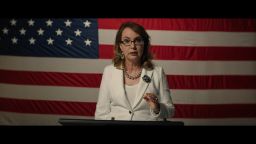
I can’t believe it’s been 15 years since that beautiful evening at Agua Linda Farms in Arizona. Ours was not the likeliest of romances. Mark had two daughters; I’d never been married. As an astronaut, he traveled the cosmos but kept me grounded as my career took off. He lived in Houston; I split my time between Tucson and Washington, DC.
I never could have known on our wedding day how drastically both of our lives would change on January 8, 2011, and how soon “in sickness and in health” would become our reality.
I was meeting with constituents in Tucson on that fateful day when I was shot in the head by a gunman who killed six people and injured 12 others. I had to relearn how to walk and talk. I fought for every step and every word, diagnosed with the communication disorder aphasia. There was a period of time when the only two words I could get out were “what” and “chicken.”
I’ve always loved meeting and connecting with new people. Aphasia makes that harder. But my progress has been slow and steady. I still get frustrated at times – as I say often, aphasia really sucks. But one of the most important lessons I’ve learned during my own recovery journey has been to persevere and never to give up hope.
Those lessons are at the heart of the new documentary, “Gabby Giffords Won’t Back Down,” which charts my long and difficult recovery.
At first, doctors weren’t sure if I’d walk again. I stepped down from Congress, my own dreams of running for the US Senate dashed. And then came Sandy Hook, and the devastating murder of 20 first graders and six teachers in 2012. I knew I had to do something, so I founded the gun violence prevention organization today known as Giffords. We’re working to build a future without violence, one where no family or community has to live with that heartache and trauma.
Today, my dreams and my future look different than I could ever have imagined 12 years ago. But not everything has changed: I’m still pursuing public service, and Mark is still by my side. And I’m still by his, campaigning alongside him for two successful US Senate campaigns.
Recovering in the public eye hasn’t been easy. Having the courage to hope – and then acting on that hope – has been key to both my recovery and my work in gun violence prevention. There were times when it would have been much easier to give up hope than to persevere. It’s been tough, for example, watching mass shooting after mass shooting dominate the headlines, knowing that tens of thousands more Americans have been killed and injured in shootings that didn’t make the news.
This year, my heart broke for the victims in Buffalo and Uvalde. Gun violence has reached record levels over the past few years. And yet, in the midst of this tragedy, there is hope. In July, President Biden signed the first federal gun safety legislation in nearly 30 years – hard-fought progress that’s a tribute to the work of countless survivors and advocates.
I am so proud of all that we’ve accomplished at Giffords – the bills we’ve helped pass and defend in court, the responsible gun owners we’ve organized, the hearts and minds and laws we’ve changed. And yet, there’s so much more work yet to be done.
Anytime someone expresses frustration about the slow pace of progress or a challenge they’ve faced, I tell them what has become my mantra: “Move ahead.” I don’t wallow, and I’d rather look ahead than look back.
When Mark and I first talked about opening our lives and our home to a documentary crew, I was a little skeptical. But I loved the documentary “RBG,” and trusted its filmmakers, Betsy West and Julie Cohen, to tell my story. And I’m so glad I did.
I’ve been asked before if the footage Mark took of me in the hospital is hard for me to rewatch. It absolutely is, but there are also moments of levity in the midst of sadness. I’d encourage anyone in a tough fight or going through a tough time to find the light in the darkness. That’s what guides you out.
I hope that those who watch “Gabby Giffords Won’t Back Down” come away with a sense of the partnership I have with Mark and how that’s underpinned the work we’ve both done over the past 10 years. I hope viewers come away with an understanding that progress is often incremental but no less meaningful because of its slow and steady nature.
And above all else, I’d like viewers to come away with a sense of hope. Because no matter how dark things seem, there is always reason to hope.
